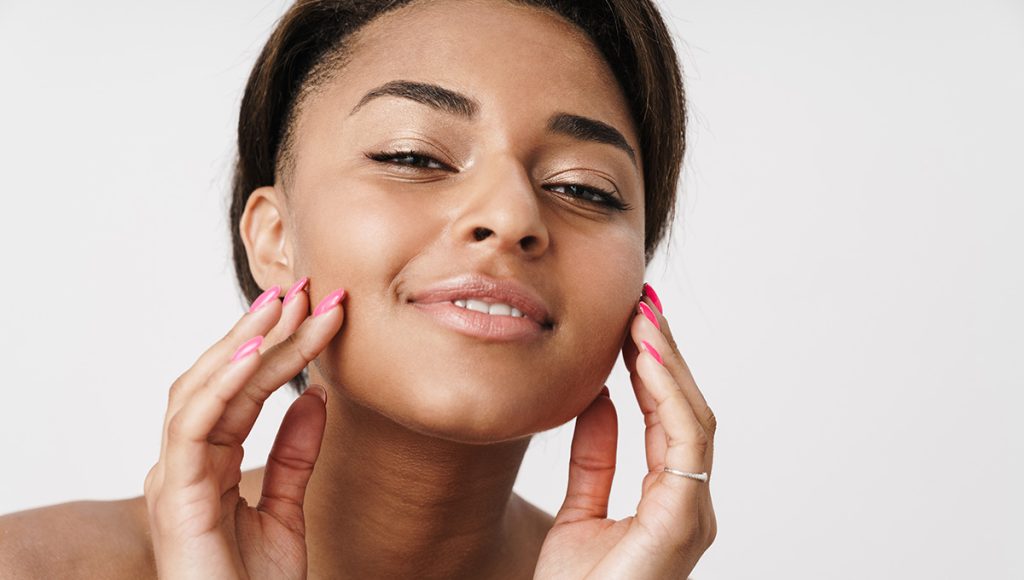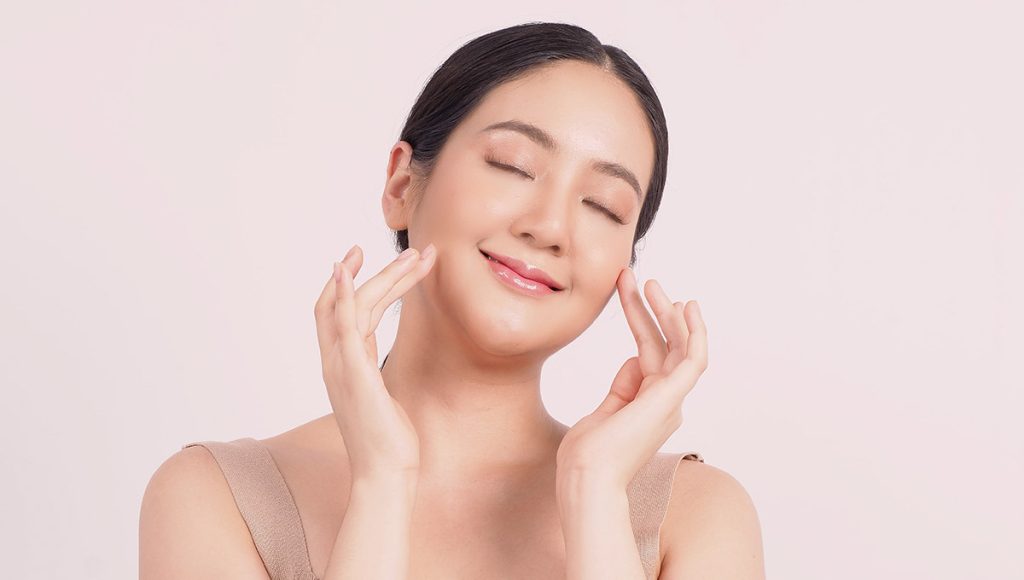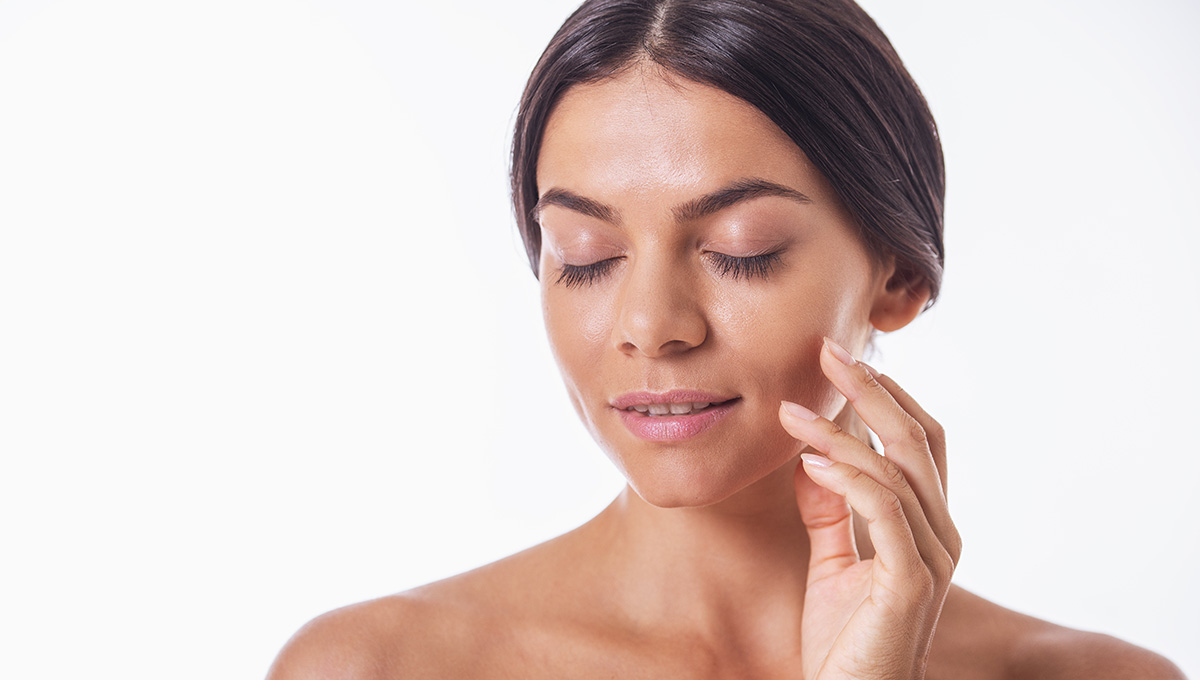If you’ve ever squinted at your reflection and muttered, “When did that dark spot get there??” — congrats, you’re human.
The good news? You’re not doomed to a drawer full of half-used spot correctors. There’s a reason the “kojic acid vs azelaic acid” debate is lighting up skincare forums, and today, you and I are going to walk through it together.
These two powerhouse ingredients pack some serious brightening and acne-fighting punch, but they’re not twins — they’ve got very different personalities (kind of like the acne you get before and after your period).
In this blog, we’ll compare them side-by-side. We’ll break down where they shine, where they don’t, and which might fit your skin goals best.
PLUS — how to work them into your routine using high-performance, customer-fave products like the Nasola Kojic Acid Face Wash, Triple Acid Facial Radiance Pads, Lemon Turmeric Kojic Acid Exfoliating Pads, and the powerhouse Clear Radiance Kit.
Let’s get glowing, shall we?
- Kojic Acid vs Azelaic Acid: How Do They Differ?
- Azelaic Acid vs Kojic Acid: Which Skin Types Benefit the Most?
- Ingredient Spotlight: Kojic Acid
- Can You Use Kojic Acid and Azelaic Acid Together?
- Skincare Routine Tips When Using Kojic Acid vs Azelaic Acid
- How Long Until You See Results From Kojic Acid vs Azelaic Acid?
- Conclusion
- Frequently Asked Questions (FAQs)
Kojic Acid vs Azelaic Acid: How Do They Differ?
Let’s break it down: kojic acid vs azelaic acid — both are rockstars, but they’re totally singing different songs.
Kojic acid swoops in to stop excess melanin in its tracks (that’s what causes those pesky dark spots), while azelaic acid pulls double-duty — zapping acne-causing bacteria AND calming inflammation.
Translation? Fewer blemishes, redness, and scars. Score.
Here’s how they compare:
- Hyperpigmentation: Kojic acid usually wins this round. It inhibits melanin production for faster fading of dark spots.
- Acne and clogged pores: Azelaic acid holds the trophy here. It’s antibacterial, prevents clogged pores, and soothes.
- Skin sensitivity: Azelaic acid is more gentle, especially on rosacea-prone or reactive skin.
Nasola Kojic Acid Face Wash for Daily Brightening
Want a skincare win without adding 10 steps? The Nasola Kojic Acid Face Wash fits seamlessly into your daily routine. It gently exfoliates and works overtime to fade existing dark spots over time without stripping your skin.
Infused with kojic acid, it clears out dead skin cells, balances oil production, and gradually diminishes discoloration. It’s especially amazing for:
- Dull or blotchy skin
- Post-acne spots
- Uneven tone
- Oily, breakout-prone skin
Too tired for a 10-step routine? Just sub this in as your hardworking cleanser and let it do the heavy lifting. Honestly?? Worth it.
Azelaic’s Calm Power
While kojic acid attacks pigmentation with precision, azelaic acid keeps the peace — great for sensitive or temperamental skin. It decongests pores and reduces inflammation caused by everything from hormonal acne to rosacea.
Perfect for:
- Redness and bumps
- Acne-prone, flaky skin
- Texture irregularities
- Melasma (especially if inflammation is involved)
If your skin cries at the mention of acids, azelaic is your pick.
Azelaic Acid vs Kojic Acid: Which Skin Types Benefit the Most?

Not every skin drinks up ingredients the same way — and that’s where the “azelaic acid vs kojic acid” conversation gets interesting.
One might suit your skin goals better than the other, depending on what your skin’s going through. Are you battling hormonal breakouts? Or struggling with stubborn sun spots?
Here’s how to figure it out:
- Oily, acne-prone skin: Responds well to azelaic acid.
- Dry, dull skin: Kojic acid helps restore brightness.
- Sensitive skin: Azelaic acid is the gentler choice.
- Hyperpigmented skin: Kojic acid targets uneven tone faster.
Using Nasola Triple Acid Facial Radiance Pads for Sensitive Skin
The Nasola Triple Acid Facial Radiance Pads are a must-have if you’re ready to exfoliate without flare-ups. Formulated to work well even for sensitive skin, they combine gentle acids like lactic, glycolic, and azelaic-compatible ingredients to:
- Improve skin texture
- Reduce clogged pores
- Calm redness
- Even out tone over time
Use a pad after cleansing 2–3 times per week to make a visible difference — it’s skincare, simplified.
How Skin Type Changes the Game
Let’s be real: skin isn’t static. It changes with seasons, stress, and age. So consider this:
- In cold climates? Azelaic acid protects and calms windburn-like irritation.
- During summer? Kojic acid helps diminish sun damage.
- Hormonal shifts? Azelaic acid can help manage breakouts caused by internal changes.
- Maturing skin? Kojic acid delivers glow and corrects signs of aging.
Understanding your skin’s changing needs is key to getting results — and trust me, your mirror will thank you.
Ingredient Spotlight: Kojic Acid
Kojic acid isn’t new — it’s actually derived from fungi during the fermentation process of rice (yes, like sake!). Its claim to fame? Fading discoloration, sun spots, and melasma like an undercover agent.
Its power lies in how it blocks tyrosinase — an enzyme necessary for melanin (pigment) formation. Less melanin = fewer spots. But…
You’ve gotta use it correctly:
- Best time to use: Evening routines
- Must follow with SPF: Kojic makes your skin more prone to sun sensitivity
- Start slow: Especially if using alongside other actives
Brighten with Nasola Lemon Turmeric Kojic Acid Exfoliating Pads
For a visible glow-up, the Lemon Turmeric Kojic Acid Exfoliating Pads are an absolute hero product.
Here’s why:
- Combine the powers of kojic acid, turmeric, and lemon extract
- Visibly reduce dark spots
- Even out tone for radiant skin
- Gently exfoliate dead skin cells
These pads are ideal for:
- Post-inflammatory hyperpigmentation
- Melasma caused by sun exposure
- Acne marks
- Uneven tone
Your nightly glow ritual? Found it.
Can You Use Kojic Acid and Azelaic Acid Together?

Short answer? Yes — if you play it smart.
These two aren’t enemies. In fact, Kojic acid and Azelaic acid CAN complement each other when used correctly. One brightens, the other calms; one fades spots, the other sweeps away the inflammation underneath. That’s a dream team.
How to combine them smartly:
- Use azelaic acid in the morning
- Use kojic acid at night
- Apply moisturizers and SPF to cushion your skin from potential irritation
- Alternate days if sensitivity arises
Clear Radiance Kit: The Best of Both Worlds
The Nasola Clear Radiance Kit takes the guesswork out of product pairing. It includes the Nasola Kojic Acid Face Wash and Lemon Turmeric Kojic Acid Exfoliating Pads to brighten, exfoliate, and fade pigmentation — all while playing nice with azelaic acid-based routines.
Ideal for:
- Building a balanced brightening routine
- Sensitive skin types that still want visible results
- Acne AND pigmentation sufferers
- Skincare beginners needing structure
Skincare Routine Tips When Using Kojic Acid vs Azelaic Acid
Ready to map out your new skincare strategy using kojic acid vs azelaic acid? Good — because doing it the smart way means fewer flare-ups and faster results. Since both are strong actives, don’t throw them on like whipped cream on a sundae.
Here are some tips:
- AM Skincare: Gentle cleanse, azelaic acid, hydrating serum, SPF
- PM Skincare: Kojic acid product, moisturizer
- Patch test: Always. Especially if you’re sensitive.
- Introduce one product at a time to see what works
Layering With Other Ingredients
If you’re layering other ingredients like niacinamide, vitamin C, or hyaluronic acid:
- Pair niacinamide with both — it calms, hydrates, and boosts efficacy.
- Use vitamin C in the morning, especially with azelaic acid for brightening.
- Apply hyaluronic acid before actives to cushion the skin barrier.
The secret sauce?? Patience and consistency.
How Long Until You See Results From Kojic Acid vs Azelaic Acid?

Want that skin transformation — like… yesterday? Same. But real talk: these ingredients take a little time.
- Kojic acid: Typically brightens skin within 2–4 weeks.
- Azelaic acid: Tackles inflammation, acne, and pigmentation, but give it 6–8 weeks for deeper results.
Your skin is not Amazon Prime. But with the right product combo and regimen? You’ll get there.
What to Expect in the Mirror
Improvements you may notice first:
- Smoother skin texture
- Less redness and irritation
- Fewer breakouts
- Gradual fade of stubborn spots
Bonus tip: Take weekly selfies in the same lighting. You’ll spot your glow-up before anyone else does!
Conclusion
Choosing between kojic acid vs azelaic acid doesn’t have to feel like picking sides. Both serve unique roles — kojic acid speeds up the brightening process, while azelaic acid calmly resets irritated or acne-prone skin. It’s not this OR that. It can be both.
And if that sounds overwhelming? Nasola has already done the heavy lifting.
Whether you’re starting with the Nasola Kojic Acid Face Wash, addressing marks with Lemon Turmeric Kojic Acid Exfoliating Pads, or going all-in with the Clear Radiance Kit, your glow-up is absolutely within reach.
Brightening isn’t just about fading spots — it’s about seeing your best skin look back at you. Let’s make that happen.
Frequently Asked Questions (FAQs)
Yes. Use azelaic acid in the morning and kojic acid at night — or alternate days if your skin feels irritated. The Clear Radiance Kit helps combine actives smartly without overwhelming your skin barrier.
Kojic acid typically fades pigmentation faster by interrupting melanin production. For stubborn dark spots, try the Lemon Turmeric Kojic Acid Exfoliating Pads.
Yes! Kojic acid helps fade acne marks and regulate oil when used in a gentle cleanser like the Nasola Kojic Acid Face Wash.
Azelaic acid works differently. It calms inflammation and fades discoloration more slowly. Pairing it with mild exfoliants like the Triple Acid Facial Radiance Pads can speed things up safely.
Kojic acid shows effect around 2–4 weeks, while azelaic acid typically takes 6–8 weeks. Be consistent and pair with SPF.
Yes, especially azelaic acid for teen acne. For gentle brightening, teens can use the Nasola Kojic Acid Face Wash.
Start with Triple Acid Facial Radiance Pads and alternate with azelaic acid every other night.
Yes, especially when used after exfoliating. Ease in by starting with the Nasola Kojic Acid Face Wash to limit irritation.
Azelaic acid in AM, kojic acid in PM. Or rotate every other day. The Clear Radiance Kit helps you establish a good system.
The Lemon Turmeric Kojic Acid Exfoliating Pads — they work beautifully on pigmentation from sun exposure, especially when paired with SPF.

